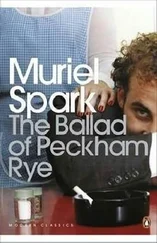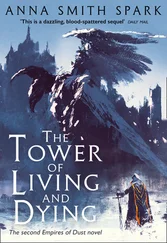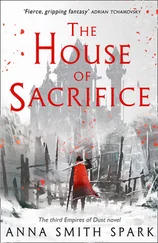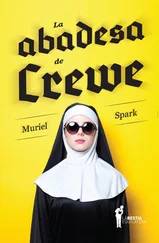"If I write myself it does not ring true; I do not get interesting replies. By the way, my English is not like the English of an English girl."
She would have made her own collection if only she had not needed the ready money, and could afford to save up the letters for the future.
"Never ask for money in your letters," Rudi had warned her. "Do not mention the subject of money. It makes criminal offence under false pretences." However, she had the brain-wave of adding her postscript, to make sure.
Jane had worried, at first, lest she should be found out and get into some sort of trouble. Rudi reassured her. "You say you only make a joke. It is not criminal. Who would check up on you, by the way? Do you think Bernard Shaw is going to write and make questions about you from the old aunt? Bernard Shaw is a Name."
Bernard Shaw had in fact proved disappointing. He had sent a typewritten postcard:
Thank you for your letter in praise of my writings.
As you say they have consoled you in your misfor tunes, I shall not attempt to gild the lily by my per sonal comments. As you say you desire no money I shall not press upon you my holograph signature, which has some cash value. G.B.S.
The initials, too, had been typed.
Jane learned by experience. Her illegitimate-child letter brought a sympathetic reply from Daphne du Maurier, for which Rudi paid his price. With some authors a scholarly question about the underlying meaning worked best. One day, on a brain-wave, she wrote to Henry James at the Athenaeum Club.
"That was foolish of you because James is dead, by the way," Rudi said.
"Do you want a letter from an author called Nicholas Farringdon?" she said.
"No, I have known Nicholas Farringdon, he's no good, he is not likely to be a Name ever. What has he written?"
"A book called _The Sabbath Notebooks__."
"Is it religious?"
"Well, he calls it political philosophy. It's just a lot of notes and thoughts."
"It smells religious. He will finish up as a reactionary Catholic, to obey the Pope. Already I have predicted this before the war."
"He's jolly good-looking."
She hated Rudi. He was not at all attractive. She addressed and stamped her letter to Ernest Hemingway and ticked off his name on the list, writing the date beside it. The girls' voices had disappeared from the wash-room. Anne's wireless was singing:
_There were angels dining at the Ritz__
_And a nightingale sang in Berkley Square.__
It was twenty minutes past six. There was time for one more letter before supper. Jane looked down the list.
Dear Mr. Maugham,
I am addressing this letter to you at your club…
Jane paused for thought. She ate a square of chocolate to keep her brain going till supper-time. The prison letter might not appeal to Maugham. Rudi had said he was cynical about human nature. On a brain-wave she recalled that he had been a doctor. It might be an idea to make up a sanatorium letter… She had been ill for two years and four months with tuberculosis. After all, this disease was not attributable to human nature, there was nothing in it to be cynical about. She regretted having eaten the chocolate, and put the rest of the bar right at the back of a shelf in her cupboard where it was difficult to reach, as if hiding it from a child. The rightness of this action and the wrongness of her having eaten any at all were confirmed by Selina's voice from Anne's room. Anne had turned off the wireless and they had been talking. Selina would probably be stretched out on Anne's bed in her languid manner. This became certain as Selina began to repeat, slowly and solemnly, the Two Sentences.
The Two Sentences were a simple morning and evening exercise prescribed by the Chief Instructress of the Poise Course which Selina had recently taken, by correspondence, in twelve lessons for five guineas. The Poise Course believed strongly in auto-suggestion and had advised, for the maintenance of poise in the working woman, a repetition of the following two sentences twice a day:
_Poise is perfect balance, an equanimity of body and mind, complete composure whatever the social scene. Elegant dress, immaculate grooming, and perfect deportment all contribute to the attainment of self-confidence.__
Even Dorothy Markham stopped her chatter for a few seconds every morning at eight-thirty and evening at six-thirty, in respect for Selina's Sentences. All the top floor was respectful. It had cost five guineas. The two floors below were indifferent. But the dormitories crept up on the landings to listen, they could hardly believe their ears, and saved up each word with savage joy to make their boy-friends in the Air Force laugh like a drain, which was how laughter was described in those circles. At the same time, the dormitory girls were envious of Selina, knowing in their hearts they would never quite be in the Selina class where looks were concerned.
The Sentences were finished by the time Jane had shoved her remaining piece of chocolate well out of sight and range. She returned to the letter. She had T.B. She gave a frail cough and looked round the room. It contained a wash-basin, a bed, a chest-of-drawers, a cupboard, a table and lamp, a wicker chair, a hard chair, a bookcase, a gas-fire and a meter-box with a slot to measure the gas, shilling by shilling. Jane felt she might easily be in a room in a sanatorium.
"One last time," said Joanna's voice from the floor below. She was now rehearsing Nancy Riddle, who was at this moment managing her standard English vowels very well.
"And again," said Joanna. "We've just got time before supper. I'll read the first stanza, then you follow on."
_At the top of the house the apples are laid in rows,__
_And the skylight lets the moonlight in, and those__
_Apples are deep-sea apples of green. There goes__
_A cloud on the moon in the autumn night.__
4
It was July 1945, three weeks before the general election.
_They are lying in rows there, under the gloomy beams__
_On the sagging floor; they gather the silver streams__
_Out of the moon, those moonlit apples of dreams__
_And quiet is the steep stair under.__
"I wish she would stick to _The Wreck of the Deutschland__."
"Do you? I rather like _Moonlit Apples__."
We come now to Nicholas Farringdon in his thirty-third year. He was said to be an anarchist. No one at the May of Teck Club took this seriously as he looked quite normal; that is to say, he looked slightly dissipated, like the disappointing son of a good English family that he was. That each of his brothers-two accountants and one dentist-said of him from the time he left Cambridge in the mid-1930's, "Nicholas is a bit of a misfit, I'm afraid," would not have surprised anyone.
Jane Wright applied for information about him to Rudi Bittesch who had known Nicholas throughout the 1930's. "You don't bother with him. He is a mess by the way," Rudi said. "I know him well, he is a good friend of mine." From Rudi she gathered that before the war he had been always undecided whether to live in England or France, and whether he preferred men or women, since he alternated between passionate intervals with both. Also, he could never make up his mind between suicide and an equally drastic course of action known as Father D'Arcy. Rudi explained that the latter was a Jesuit philosopher who had the monopoly for converting the English intellectuals. Nicholas was a pacifist up to the outbreak of war, Rudi said, then he joined the Army. Rudi said, "I have met him one day in Piccadilly wearing his uniform, and he said to me the war has brought him peace. Next thing he is psychoanalysed out of the Army, a wangle, and he is working for the Intelligence. The anarchists have given him up but he calls himself an anarchist, by the way."
Читать дальше
